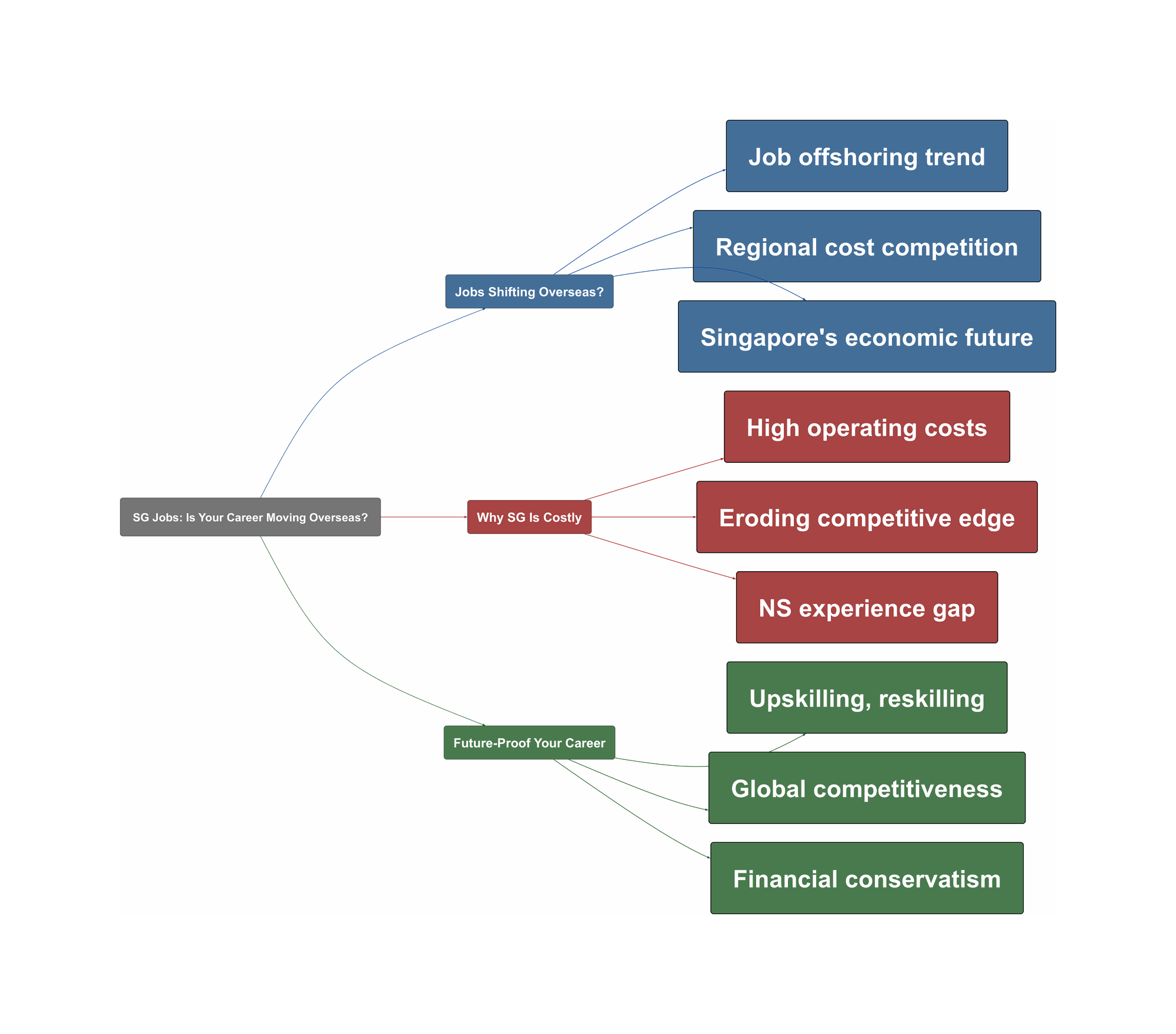Ever felt that pang of worry when you hear about companies shifting operations overseas? Or maybe you’ve seen friends struggling to land good roles here in Singapore? It’s not just a rumour floating around the kopitiam; many Singaporeans are feeling the heat as jobs potentially move to neighbouring countries. Let’s dive into what’s really happening and what it means for your career.
Jobs Shifting Overseas?
The trend of companies relocating roles out of Singapore isn’t new, but it’s certainly accelerating. Recent discussions highlight a clear pattern: businesses are laying off local managers and staff, then rehiring in countries like Malaysia, Vietnam, and India. This shift isn’t limited to specific sectors, with cybersecurity, IT roles, and business backends being particularly affected. While Singapore has historically gained jobs from Western outsourcing, the tables are turning as our neighbours become more competitive.
“I’ve heard from 2 sources about this: A cybersecurity company in SG layed off their managers and rehired in Malaysia.”
This movement suggests a strategic re-evaluation by companies looking to optimise costs. What was once Singapore’s strength – its stability and ease of doing business – is now being matched by regional players who offer a significant cost advantage. It’s a wake-up call for the local job market.
“100% it’s happening. I was a union leader for several years and have witnessed several job losses mainly to Malaysia. According to the unions, we are losing a lot of headcounts to Vietnam and India for IT roles and business backends to Malaysia and Philippines.”
Why SG Is Costly
The primary driver behind this exodus of jobs is, simply put, cost. Singapore is expensive, and this applies directly to labour. High wages, coupled with significant employer CPF contributions, make Singaporean talent a premium. In comparison, a worker in Malaysia with similar skills and language proficiency might cost only one-third of a local Singaporean. Beyond wages, factors like soaring HDB shop rentals and coffee shop prices contribute to the overall high cost of doing business here.
“We are simply too expensive. Which is why in many posts made on Reddit, I criticized Lawrence Wong’s solution to inflation – perpetually increasing wages. We are already too expensive and business are shifting overseas.”
Adding to the challenge, Singaporean men lose two years of work experience due to National Service, putting them at a disadvantage when competing globally. Furthermore, while Singapore has a strong education system, the younger generation in neighbouring countries are rapidly improving their English proficiency and gaining valuable experience, eroding Singapore’s traditional competitive edge. The days when simply being Singaporean was enough are long gone.
“Employer CPF contributions alone could cover salaries elsewhere. Plus, men lose two years of work experience due to NS.”
Future-Proof Your Career
So, what can Singaporeans do to stay competitive in this evolving landscape? Firstly, it’s crucial to re-evaluate your long-term financial commitments and adopt a more conservative approach. The job market is becoming tougher, and financial prudence is key. Secondly, the focus must shift from relying on geographical advantage to demonstrating indispensable value. This means continuously upskilling and reskilling to ensure your expertise remains highly sought after.
“It might be wise to reevaluate long term financial commitments and be more conservative”
Think beyond just your qualifications; experience and unique contributions are increasingly valued. You need to show why a company needs a team in Singapore, and why *you* specifically bring something that can’t be easily replicated elsewhere. This involves cultivating a global mindset and actively seeking to compete on a worldwide stage, rather than just locally. Embrace lifelong learning and adapt to new technologies and industry demands to secure your future.
“I always tell my colleagues that you better show why we need a team in Singapore and not a random bunch of employees who happens to be here. The latter means someone sooner or later will figure out why have this in Singapore and not Penang.”





